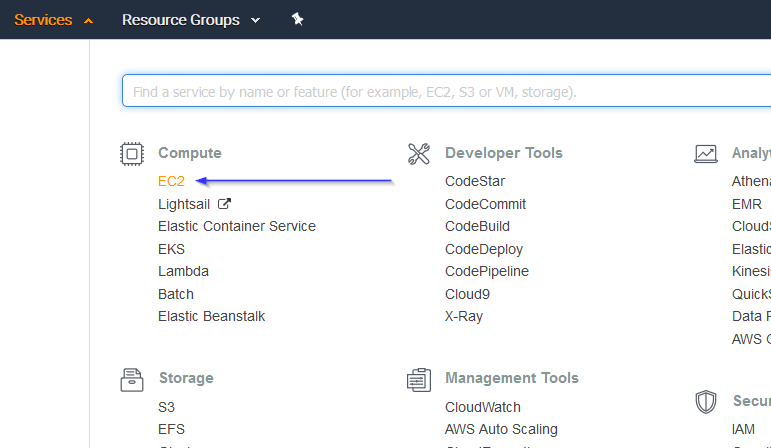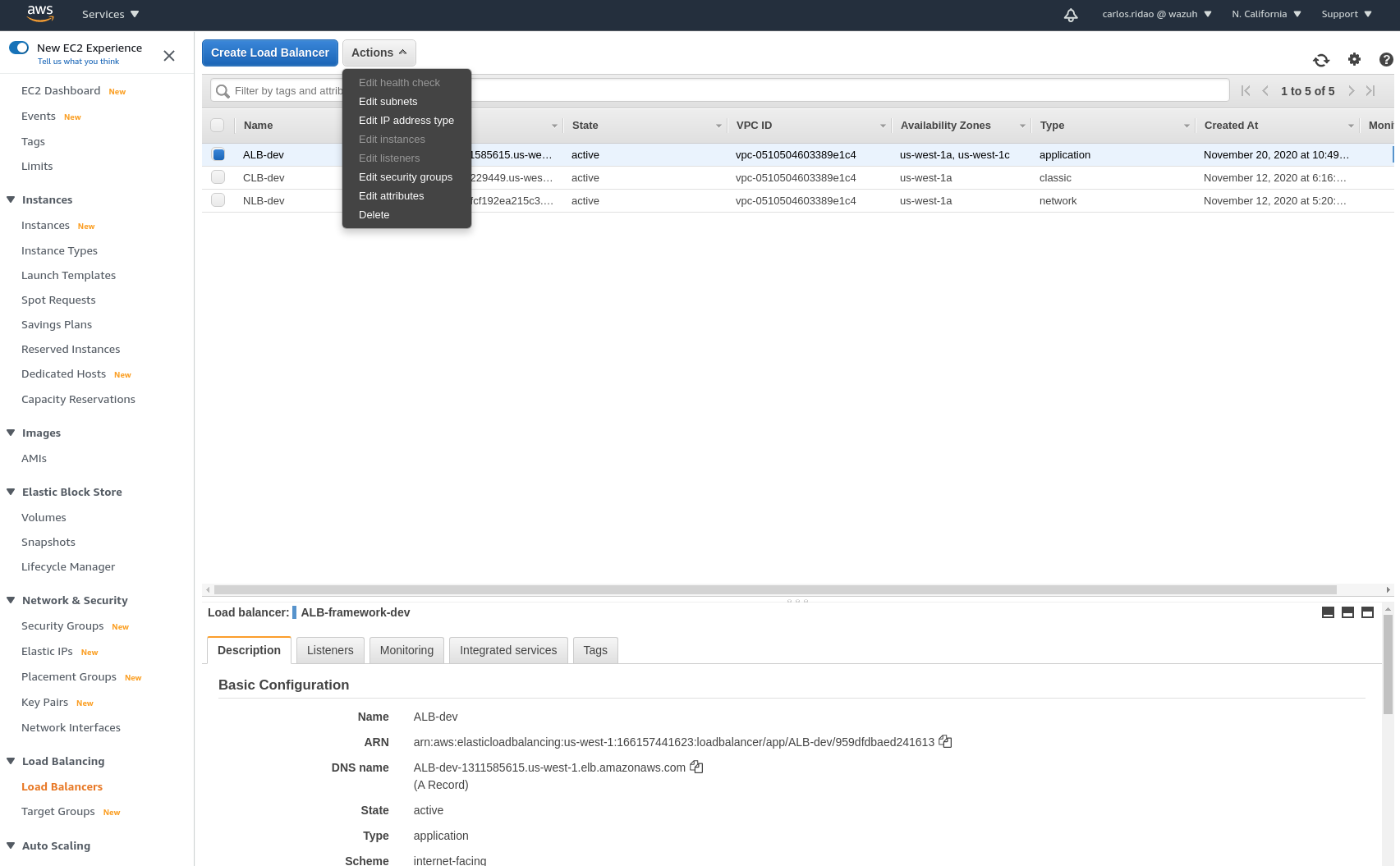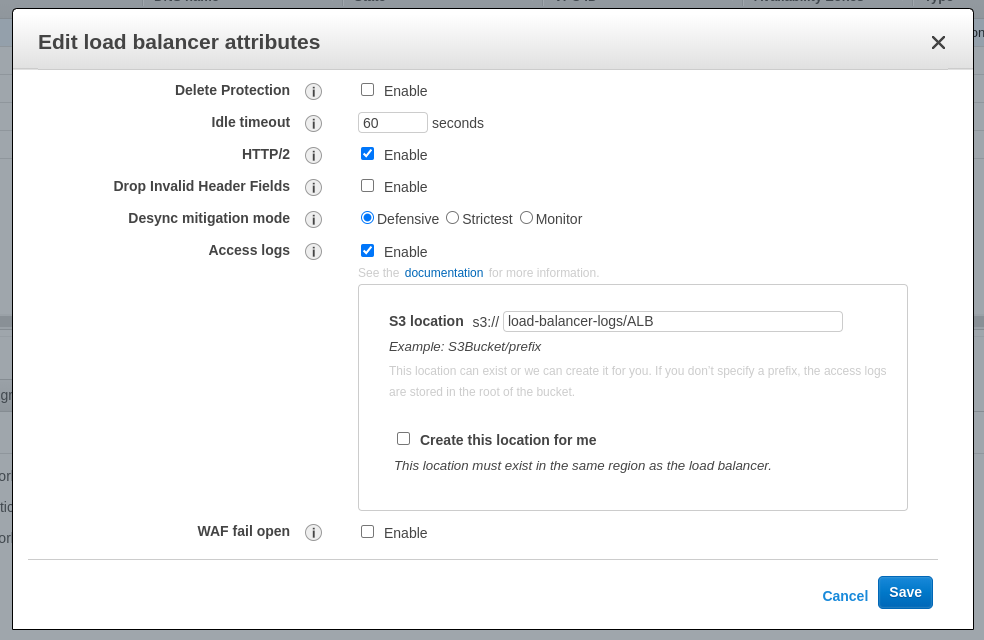Amazon CLB
Classic Load Balancers (Amazon CLB) Elastic Load Balancing automatically distributes the incoming traffic across multiple targets, such as EC2 instances, containers, and IP addresses, in one or more Availability Zones. It monitors the health of its registered targets and routes traffic only to the healthy targets. Users can select the type of load balancer that best suits their needs. A Classic Load Balancer makes routing decisions at either the transport layer (TCP/SSL) or the application layer (HTTP/HTTPS). Classic Load Balancers currently require a fixed relationship between the load balancer port and the container instance port.
Amazon configuration
Select an existing S3 Bucket or create a new one.
Go to Services > Compute > EC2:

Go to Load Balancing > Load Balancers on the left menu. Create a new load balancer or select one or more load balancers and select Edit attributes on the Actions menu:

In this tab we will define our S3 and the path where the logs will be stored:

Note
To enable access logs for CLB (Classic Load Balancers), check the following link:
Wazuh configuration
Open the Wazuh configuration file (
/var/ossec/etc/ossec.conf) and add the following block for CLB:<wodle name="aws-s3"> <disabled>no</disabled> <interval>10m</interval> <run_on_start>yes</run_on_start> <skip_on_error>yes</skip_on_error> <bucket type="clb"> <name>wazuh-aws-wodle</name> <path>CLB</path> <aws_profile>default</aws_profile> </bucket> </wodle>
Note
Check the AWS S3 module reference manual to learn more about each setting.
Restart Wazuh in order to apply the changes:
If you're configuring a Wazuh manager:
For Systemd:
# systemctl restart wazuh-manager
For SysV Init:
# service wazuh-manager restart
If you're configuring a Wazuh agent:
For Systemd:
# systemctl restart wazuh-agent
For SysV Init:
# service wazuh-agent restart